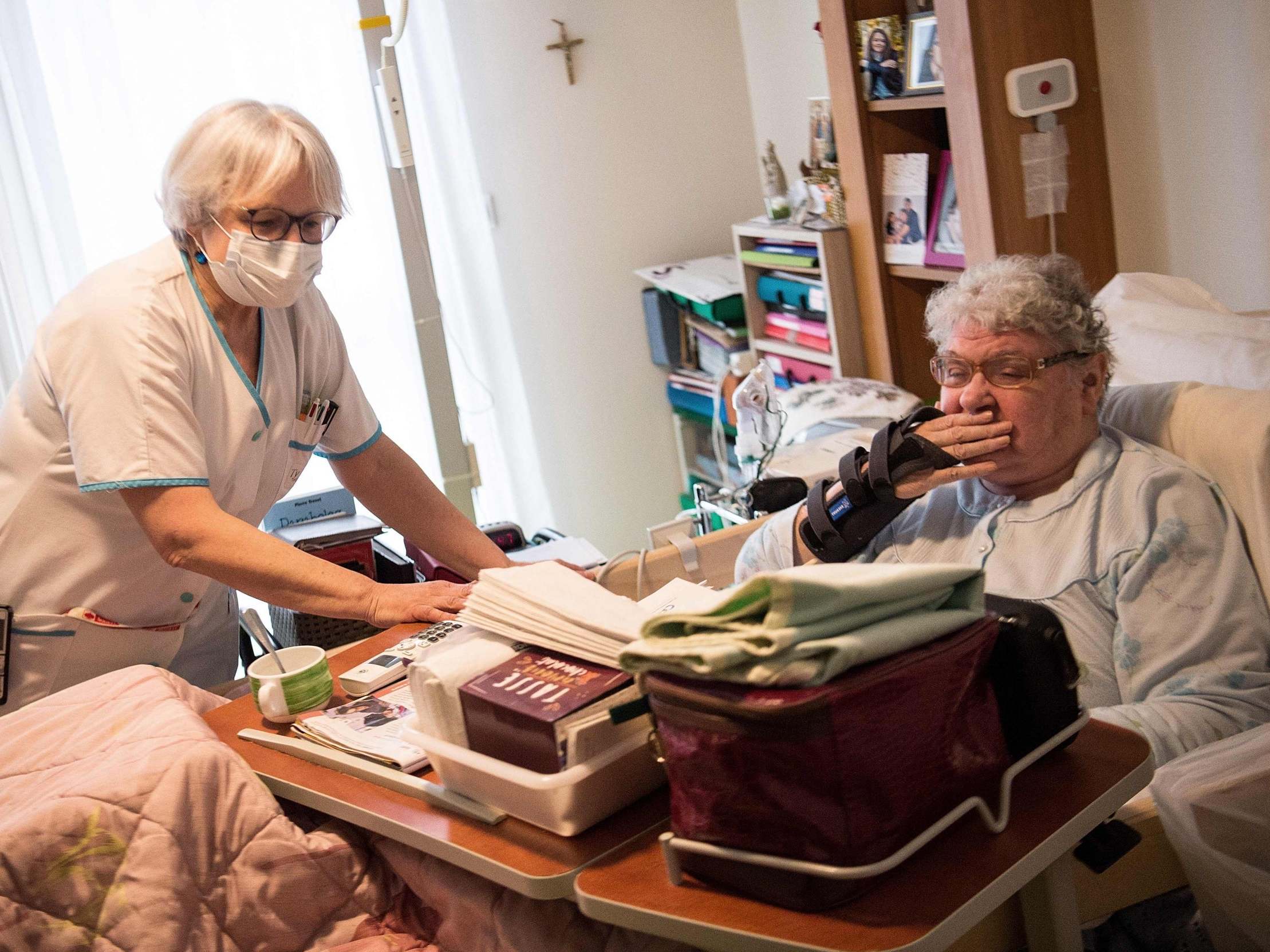The generational fault lines over coronavirus are considerable – but there are some reasons to be cheerful
There are many difficulties for families living together, but the lessons learnt from the pandemic could help the world in the future, writes Matthew Norman


In the midst of the horror and the terror over the coronavirus outbreak are reasons to be cheerful, and to those we will come in good time.
But oh my giddy aunt, this is gruesome. And this, to be indelicately frank, has barely begun. I type these tediously gloomy words from a north London household that might have been computer-designed by sadists to generate maximum filial neurosis.
In the sitting room below are my parents, who are in their mid-eighties and not necessarily poster folk for the immaculate immune system. A floor above, lounging in front of some typically mind-enlarging kill-em-all video game, is the 18-year-old grandson who lives with them, and goes to and from work via the London Underground.
I love my nephew to bits, but all the avuncular fondness in the cosmos cannot disguise that he, in keeping with his age and gender, was always a long shot to represent his country in Assertive Hand-Washing at the soon to be postponed Personal Hygiene Olympics.
Many of you here face the same challenge to minimise the risk to the elderly – and, touch wood, with better grace and less aggression. I’ve been on high alert as I tour the house with the Dettol wipes.
Orders not to touch things are screamed at young and old alike. Peremptory lectures about which loo to avoid are yelled. “Put that tea towel down,” I heard myself screech this morning, in a tone borrowed from a generic Nazi leader seen in many Second World War films, “and step away from the cutlery.”
I haven’t shouted “Raus, raus!” as someone approached the kitchen sink yet, but it’s only a matter of time.
The killer conundrum for me, which appears to have escaped the government, is this: how do you get teens and twenty-somethings to take this seriously?
In recent days, friends have piled up the anecdotal evidence about the young insouciantly disregarding the threat they pose to the old.
While bars and clubs remain open, they frequent them with the casual abandon of people to whom the virus is almost certainly no threat at all. This is someone else’s problem.
The rough justice at work feels almost too brutal to observe. But for a decade and more, old-timers have disdained the menace of the climate crisis, declining to change their habits on the grounds that they won’t be around to suffer the consequences.
Behold, the future victims of catastrophic warming are repaying that indifference by refusing to modify their behaviour because they are at no or minimal risk. In another context, the symmetry would be exquisite.
In this context, the potential for unintended intergenerational payback will be mortifying to most, if not the prime minister.
The theory of obtaining herd immunity through an infection rate upward of 60 per cent may or may not be scientifically sound. With a brand new virus, no one – not even chief medical officer Chris Witty, by repute much the best of his breed in the world – can possibly know.
But if the likely cost of enabling the young to remain exposed to it is mass open graves for the old, you suspect that a chillingly Darwinist mindset is in operation at No 10. Johnson’s stated admiration for the sheriff in Jaws, who kept the beach open while the shark wrought havoc, becomes the most distasteful detail yet unearthed from his body of journalistic work. Which is saying something.
Matt Hancock, the alleged health secretary, yesterday denied that herd immunity ever crossed the government’s mind. Irritation at the glibness of that lie is swamped by relief that the next tranche of tyre-burning U-turns will surely include the belated closure of schools and colleges, as well as official advice to the over-70s to isolate themselves for months.
On the eve of this defensive war, one tiny consolation is that those at gravest risk were trained during the last one to cope with the privations. My parents, who grew up during the Blitz with perpetual danger and rationed food, are infinitely calmer and more stoical than me.
The lengthy absence of their grandson will be harder to bear when I move him to my place in a day or two. But there is no longer a choice.
And finally, in a wild bid to dispel the gloom for 30 seconds, those reasons to be cheerful.
* With every day of blowhard incompetence and tanking stock markets, the odds that Donald Trump will lose to Joe Biden in November contract.
* At a few days shy of 103, Dame Vera Lynn survives to re-record “We’ll Meet Again” for those about to be separated from their loved ones until the summer.
* The sudden decline in air pollution will be spectacular. Who knows, the obvious health benefits may even persuade urban SUV drivers to stifle their selfishness, and swap their carbon-belching monsters for proper cars.
* Judging by a jaunt through Soho the other night, someone will have the wit to re-release The Specials’ “Ghost Town”, one of the finest singles ever cut.
* If the next pandemic is similarly infectious but has a kill rate closer to Ebola, and assuming the right lessons have been learnt, hindsight might refashion this one as the pandemic that saved the world.
Join our commenting forum
Join thought-provoking conversations, follow other Independent readers and see their replies
Comments